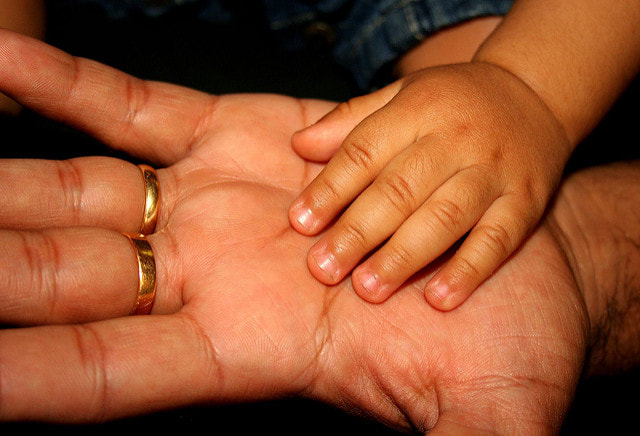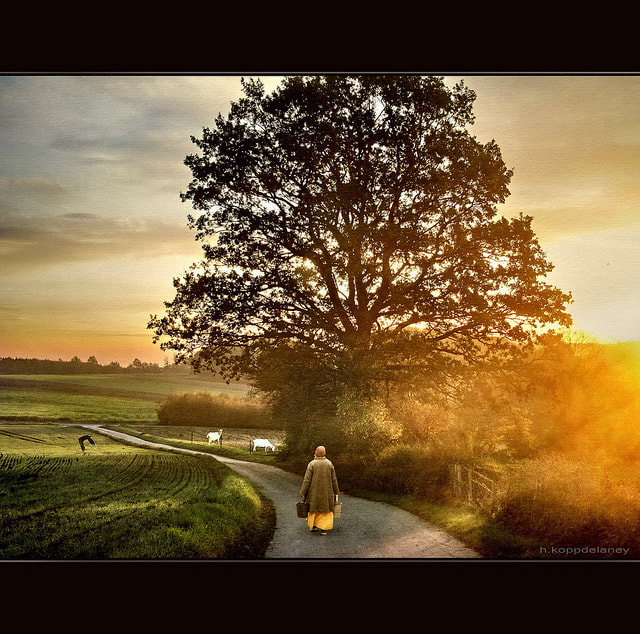I invite you to consider the qualities of spirit as the most important of your dietary guidelines.Peace is not a synonym for agreement. Peace is a quality of stillness and acceptance. When we can stop placing our mind’s conditions of peace onto the world, then we can be at peace. When we can let go of the grip we have on our own agenda and find a deeper trust in our lives that is bigger than anything we could have imagined, then we are entertaining peace. We don’t “fight” for peace. In peace, there is no againstness. Peace does not exist when something else stops existing. Peace is in the stillness that is already here. Are you listening for it? Are you able to let go when things don’t go the way you want? It’s hard, I know. We get so invested in our plans and our hopes for ourselves and for others. We get confused and we think that we are being loving. What if loving was much simpler? What if there was no effort in loving, as loving just…..is? Peace.
Orienting ourselves towards peace and loving helps us navigate from an empowered and uplifted state. Imagine, every morning, taking a moment to refocus on your loving nature. Imagine taking a breath, or two, or ten, that was only devoted to peace, to stillness. How might this small activity shift things for you? How might you choose differently in your morning routine? What would stay the same? It’s simple. Not easy. There are many distractions. And the distractions are not going anywhere, and likely will become more compelling. Bringing down inflammation is very much about choosing healthy foods, and it is also about soothing what is inflamed within us. When we attend to the fight within than we are really making progress for our own wellness. So how do you do that? We have to give up the luxury of thinking the problem lies outside of us. Catch yourself when you blame them, or him, or her, or anything external for being the problem. Instead, turn your gaze inward. The answer to your discontent does not lie outside of you. Peace is not about managing your reality into a fragile harmony. It is about soothing the conflict within. Where is your inner conflict? Where are you judging yourself? Where are you pressuring yourself? Where are you suppressing your feelings? When are you telling yourself you are unsafe, unlovable, no good, a failure? How are you hard on yourself? The willingness to explore this terrain is critical. What is also critical is the willingness to let go of the inner conflict.The idea that letting go of all the ways you control and manage yourself with judgments, criticism and fear will most certainly lead to you being out of control and worse off than you are now is how fear maintains its grip on you. We must challenge this kind of thinking, and start to consider what it might be like to trust in yourself. Trust is essential and many of us early on had reasons not to trust. I get it. Me too. And so the journey back into trust becomes all the more worthwhile. It is possible to stop living in fear. Fear of messing up, saying the wrong thing, getting fat, being rejected or abandoned. Yup, all that is there. For most of us. And it does not have to rule you. It does not have to be your boss. Consider that everything so far in your life has brought you right to this very moment. Right to the place where you are starting to consider that you are worth more than you thought you were. Consider that every hardship has been in service to your own awakening into a deeper understanding of yourself. You can trust yourself and you can trust your life. Everything in your life, on the micro and macro levels, is working for you.Every disturbance, irritant, discontent, is grist for the mill. It is a stepping stone for you to reach deeper into yourself than ever before, past all the pressuring and judging and attachments. The world is for your own liberation. Liberation is the opposite of control. Beyond liberation lies peace. Use your lifetime to find your own liberation. I believe this is what deeply serves the world. More so than our anger and our cynicism ever could. It is exciting to me to think of where your liberation might lead you. What might you create? How might you treat yourself and others? Ultimately we each have the opportunity to genuinely love our lives and love ourselves. So cultivate peace from the inside out. Do whatever it takes and then observe the changes in yourself and the world. Then tell us all about it.
0 Comments
What if every day of your life was a treasure hunt? What would you be searching for? Money? Connections? Pleasure? Relief? Love? Beauty? Those are just a few ideas, but we are all wired to think of “treasure” as something worth getting and that something is different for everyone. But it is a set up isn’t it? Because if we have defined success, or getting the treasure, as something, like feeling happy for example, then what happens when we have a day that is full of grief? I mean, life happens right? So does that day of grief get labeled as a “bad” day in our minds? Often, it does. And we are socially conditioned to do this, to label our day as a “good” day or a “bad” day. And let’s be honest, but isn’t a “good” day just a day that happens to go our way?
How about just experiencing whatever day we are having and letting go of the label of good or bad? What if, every single day, no matter what is happening, is a treasure hunt, and that treasure is simply, peace. In other words, how can we find the peace in every day? Being at peace with what is happening does not mean we are passive about things that upset us or need changing. It does mean being at peace with our own response to that particular day. If there is something upsetting in the news for you that day, then there is a choice. You can think its “bad” and therefore you will have a “bad” day, or you can accept what you are feeling (not so much thinking) and use it to get to know yourself more deeply, and build compassion for yourself. What are you feeling when you are upset by the news? Sadness? Disappointment? Anger? And then under the anger, is it fear? Powerlessness? Empathy builds when we acknowledge the feeling that is present without judging it as bad or wrong or trying to fix or solve it. First we allow the feeling to be present and recognize that it’s likely pretty normal to have such a response. Next we can ask ourselves the question, “what do I need today?” Here are some ideas to help you find your way.
It could be the guidance you received from your self investigation, leading you in a new and enlivening direction. Or it could be the simple awareness that something does need to change, even if you don’t know what that is just yet. The good news is you are listening now, and not leaving yourself behind in your efforts to attain some idea of success (more money, cleaner fancier house) or someone else’s expectations of you. You are living your life and letting that deepen into something more enriching than before because every part of you matters and exists for a reason. Even the tired and irritable part. We need only be willing to listen and hear the underlying message. Life becomes more complex and stressful when we don’t allow ourselves expression to be the full spectrum of who we are as human beings. We simply cannot afford the luxury of suppression any longer. This doesn’t mean we can explode with abandon. In fact, emotional explosions tend to be the result of long term suppression. It does mean we take stock on a daily basis, and work to surrender our agenda for our lives, or the day, and open up to the bigger picture of who we are and what life might have planned for us. It’s not easy. But it can be magical to set aside all the ways we attempt to control ourselves and our day to day. What happens then? Well, go ahead and see. And share with me about it, if you want, in the comments. The developmental psychologist, Erik Erikson, identified eight psychosocial stages for ego development.The first stage he titled Trust versus Mistrust. In this first stage, Erikson theorized we are under an essential crisis, which is the question, “is the world safe or not safe?” Depending on the consistent loving care of our parent or provider during infancy, we develop a sense of trust in the world to meet our needs or not. This sense of trust or mistrust, carries over into all relationships. Including, we can assume, one’s relationship with herself.If we complete this stage with a sense of trust, then we also complete this stage with hope, or confidence, that future crises or challenges will be managed successfully.If we complete this stage with mistrust, that is, if our needs were not lovingly met in a consistent way, than instead of hope lies anxiety, or fear, and a lack of confidence in addressing the inevitable obstacles of future reality. To read more about Erikson and his psychosocial stages click here.
Let’s take this premise and apply it to the essence of Conscious Wellness. Let’s also hypothesize that most people have a mixed experience of trust and mistrust, that it isn’t so black or white as Erikson describes it in his stages. Let’s assume that one could complete the stage with trust and mistrust, and that this stage may never actually be complete, but continues to evolve within us as we move through each relationship and experience that life has to offer. The one person that we will always be in relationship with our whole lives is our own self.What does it mean to be in relationship to our own self? How is that even possible? Well, let’s consider for a moment the different levels of communication that we can participate in. The first thing you may think of when I say communication is talking and then you might think that it is ridiculous the notion of talking to yourself. Unless you’re me, and I talk to myself all the time. Modern psychology identifies that the majority of our thinking on a daily basis is negative self talk. So maybe we are not talking to ourselves out loud, but there sure seems to be a lot of chatter in our minds and many of us are not even aware of the constant self talk that is going on and guiding the way we feel and how we make choices everyday. If you are interested in discovering what your self-talk might be I suggest sitting quietly, with no distractions, and writing in a journal. Without censoring yourself or worrying about correct spelling or grammar, just let yourself write the flow of thoughts onto the page and observe what comes up. Additionally, noticing what you are thinking about others can also be an indicator about how we talk to ourselves internally as well. We believe in the power of awareness, that is, becoming ever more aware of ourselves and our inner life. This means becoming conscious of our motivations, impulses, insecurities, needs, feelings, wants, passions and concerns.
The more we become aware of ourselves, the more we can develop a relationship of listening to ourselves with compassion and understanding. This willingness to hear our own needs and responses to life gives us a unique position to respond to ourselves with great care. Indeed, we have the opportunity in self-reflection to respond to ourselves the way we may have always wished others would respond to us. Building a caring relationship with our self is an empowering action and a foundational step towards conscious wellness. Within a loving and kind relationship, the true self naturally emerges.We no longer need to maintain defenses or coping mechanisms from the past to avoid looking at our self. In the presence of a loving other, we can begin to get to know the truth about what we need, and what our own wellness goals really are in this moment. Because we are dynamic, alive beings, these needs and goals are rarely static, but more evolving and deepening over time. Building skills to self-reflect with compassion and curiosity, rather than criticism, invites more of our self to emerge and sets a trusting precedent with ourselves that reinforces the self-reciprocity inherent in listening to our bodies, emotions, and thoughts with respect and then responding accordingly. This emergent autonomy strengthens over time an inner locus of control, which basically means that you become the expert on you.Being the expert on yourself does not mean dismissing other points of view, feedback, or medical information at all. It means incorporating your own voice into the discussion of your health. Too easily we have signed over that voice to a new fad diet, or our friends exercise routines, or other advice that in truth, may or may not be the right fit. Just because it works for another does not mean it will work for you. This is the value of self-reflection and building a wellness autonomy. Only you know your body- how your digestion feels, how your joints feel, what level of concentration is normal for you, how you are enjoying or not enjoying your life and able to see the beauty within it. These are all indicators of wellness and very unique to each individual. |
Archives
July 2018
Categories
All
|





 RSS Feed
RSS Feed